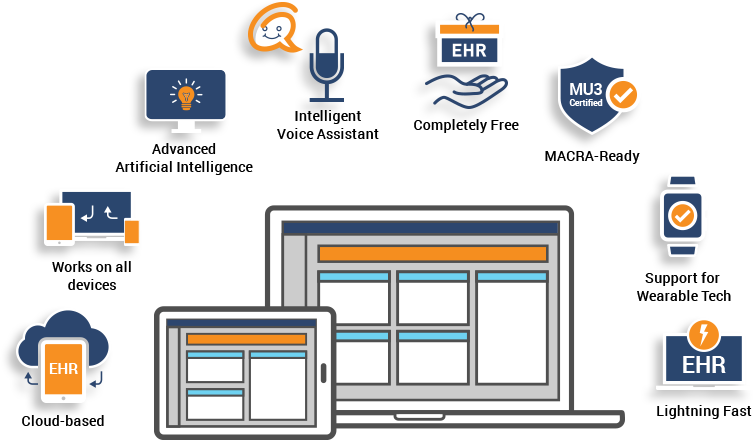
EHR systems act as a bridge between quality healthcare and streamlined workflows, helping physicians lower their workload and improve management of their practices. Vendors exist with confusing marketing strategies, which distract users from making the right decision. Several features are available in the market with different names and functionalities; some offer facilities at competitive rates, whereas, some focus on the quality of the services provided. Various packages are displayed on the vendors’ websites, each catering to the requirement of a different user; with options such as CPOE system availability, specialty-based templates etc. Before the user realizes his mistake, the purchase has been made. The product has been tried and tested but the chances of its success look bleak. As a result of such underperformance due to an ineffective EHR system, the whole practice suffers. The staff does not know how to manage the documentation of the patients; the patient registration should be swift with the presence of a patient portal, but due to the unsuccessful implementation everything seems to be falling apart. A lot of attention needs to be given to the EHR system selected for purchase. Therefore, we have compiled a list of features that are absolutely necessary for any EHR:
AI implementation:
Artificial Intelligence (AI) has surrounded us through its applications; in our smartphones, computers, car etc. It has made a major breakthrough in the healthcare industry with its implementation:
Automation of workflows:
It allows the detection of skin cancer with greater accuracy as compared to skin experts, based on the study published in the Annals of Oncology. So how does AI play an important role in the performance of an EHR system? Artificial intelligence aids in the automation of workflows; tasks which consumed a lot of time before such as patient registration, insurance verification etc, were expedited in no time. Different tools such as KPI dashboards facilitate physicians in enterprise scheduling, intelligent billing etc. This lends quite some help in the management of a practice. Physicians have the ability to manage workflows through a single pane of glass, especially with an easy to use interface.
Read More: Top 15 EHR Vendors of 2019
Data Analytics:
Using algorithms and other machine learning techniques, EHR systems are able to analyze patient data and predict solutions to the problems by physicians’ especially diagnostic errors. According to a study conducted by cio.com, diagnostic errors cause about 10% of patient deaths. Such tools are nothing but a blessing in disguise, almost all of the workload is halved.
True interoperability:
Sharing of information between the different stakeholders of the healthcare industry is an absolute necessity. Many solutions fail to provide a gateway between the physicians and the rest of the industry; pharmacies, lab reports, health information exchanges etc. EHR systems should provide a flawless interface for an effective dispersion of information.
Patient portal integration:
Patients should be able to schedule their own appointments, contact physicians at will, and view their progress online via the patient portal. It allows them to communicate through the channels of text messages and email. Patients can request prescription refills and register prior to their arrival at the practice. This significantly saves time and enables the staff to manage other tasks, instead of patient registrations and insurance verifications. There is increased patient compliance due to the 24/7 access to patient records; clients are able to view their reports and comply with the treatment, as advised by the physicians. This subsequently leads to better clinical outcomes.
Related Article: Maintaining Patient Interaction In The Medical Billing Process
Cloud-based services:
Data is stored and backed up online, which can be accessed anytime the user wants. Before cloud technology was available, physicians had to purchase entire client servers just for the sake of online backup. Client Servers can be pretty expensive to procure; they can cost around $40,000! There are no hardware or software installations required, which make it such a good option for the storage of data. The need for hiring IT specialists and a whole team for support purposes is automatically eliminated, cutting a hefty operational expenditure. Expanding isn’t that much of a hassle, cloud services allow rapid expansion of operations since no physical infrastructure or staff is involved.
Support for newer treatment methods:
Each day effective treatments are being introduced in the industry, with significant success rates. Recently immunotherapy has been inculcated in the field of Oncology as a beacon of hope against cancer, though it is still in the testing phase. According to a study conducted by the Brigham and Women’s Hospital, immunotherapy increased the survival rate of the patient from 5.2 months to 12.4 months, which is quite an achievement as compared to other methods of treatment. Support for such treatment methods should be mandatory. EHR system which provides support for latest methodologies should be the top choice of physicians.
Wearable technology:
People can now track their health through the use of digital devices such as health-tracking watches, wearable bands etc. EHR systems now have the ability to harness the data retrieved from these digital devices, which allows physicians to monitor crucial patient data in real time. Through the application of such devices, diseases such as diabetes can be easily controlled.




More Stories
Addressing Common Challenges in Medical Coding and Billing
The Future of Radiology Information System
How To Buy EHR Software in 6 Steps